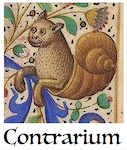Sweden. Day 29. City time and country time.
I was told by locals that people in Stockholm were a bit more closed, less patient, less polite, less friendly, than people at Björkö. I don’t know if it is true, everybody seemed nice enough, but they did seem to be a bit more in a rush in general. They didn’t have much time to stop and give detailed information when asked, much less to give a full interview to some random stranger.
Perhaps the big difference between people in general is not so much related to their political views or their nationality or their culture, or even what team they cheer for, as it is to one much more basic and ancestral difference: are they from the city, or are they from the countryside?
Of course there are many differences between city people and country people, but I think the most remarkable one is their relationship with time.
Time in the country is related to the rhythms of Nature: the seasons, the sunrise, the sunset; the time of animals and the time of plants. In the city, time is more artificial, mathematical, dictated by the constraint of deadlines, schedules, office work; the time of calendars and the time of clocks.
People in the country need to wait for the harvest to be ready, there is no way to rush it. People in the city have to rush themselves and each other all the time, and if the printer or the photocopy machine doesn’t work for a few seconds, they get mad.
I recently watched a video of a 93-year old Sardinian nonna making handmade pasta; just kneading the dough took 30 minutes, then several hours to craft each little lorighitta, making sure to have enough to feed the whole family, plus the time to let it dry in the sun, make the sauce and so on. In the end, the whole operation, done well, can take the whole day. Who has time for that in a city, with our increasingly short “free time”?
This division can apply to anything, really. Art, in a way, is more related to country time. “You can’t rush art”, isn’t what they say? While many or perhaps most painters due to the constraint of having to find work, lived in big cities — Paris, Rome, Amsterdam — and in many cases followed bohemian lifestyles, hopping between cafes and bars, they would go several times to the countryside to paint. Not just because of the subject matter such as landscapes or themes from nature, but because it provided a relaxation that they couldn’t find in the town.
Appreciating art is also more related to country time —- going to a museum and silently looking at each painting takes a certain amount of time and patience, while looking at an artwork on a phone for a few seconds before clicking on “Like”, is really the wrong way of doing it.
Social media is city time. Blogs and books are country time. Running, aerobics, and anything done at a gym is city time. Taking long aimless walks is country time. Modern abstract art is city time. Traditional figurative art is country time.
I started here on country time, as appropriate, taking long daily walks and letting things slowly settle in. But now almost a whole month is gone, and I need to finish my project (there will be a presentation next weekend), and I feel time rushing past me like one of those ultrafast Japanese trains. I have so much still to prepare and I am afraid I can’t finish it — writing, editing the video, preparing the presentation, organizing everything, all this will take days that I don’t really have anymore. Even if you take things slowly, Time never stops.
You can slow down time, as they do in the country, or you can rush it, as they do in the city; you can stretch it or you can shorten it. You may even be able to bend it.
But you can’t escape Time.




